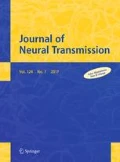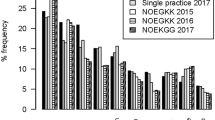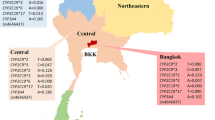Abstract
Common polymorphisms in the genes encoding CYP2D6, CYP2C19, CYP2C9 and VKORC1 enzymes have an important role in predicting the occurrence of adverse effects and the efficacy of substrate medications. Drug-induced changes to the enzyme’s phenotype, a process called phenoconversion, comprise another important factor contributing to interindividual variability in drug response. To date, there is lack of data on the frequency of these common polymorphisms and phenoconversion in the pan-ethnic Australian population. The aim of this study was to (1) describe allele, genotype and phenotype frequencies for CYP2D6, CYP2C19, CYP2C9 and VKORC1 enzymes in the pan-ethnic Australian population and (2) evaluate the frequency of actionable pharmacogenomic (PGx) variants and phenoconversion. Frequencies were calculated using the records of 5408 Australian patients (obtained from myDNA’s propriety database), who were consecutively tested with the DNAdose PGx test which included the CYP2D6, CYP2C19, CYP2C9 and VKORC1 genes. In 2509 patients with listed medications at the time of testing, phenoconversion frequencies were calculated for CYP2D6, CYP2C19 and CYP2C9 enzymes. Allele, genotype and phenotype frequencies in our Australian patients correlated with a Caucasian population. Approximately 96% of patients had at least one actionable PGx variant. A five-fold increase in the frequency of poor metabolisers (PMs) for CYP2D6 and CYP2C19 was predicted by phenoconversion. Our study results indicate a high frequency of actionable PGx variants in our Australian population. With the addition of drug-induced phenoconversion, our results provide further support for the utilisation of PGx testing in clinical practice as another tool assisting prescribers in the application of personalised medicine.

Similar content being viewed by others
References
Bank PCD, Caudle KE, Swen JJ, Gammal RS, Whirl-Carrillo M, Klein TE, Relling MV, Guchelaar HJ (2018) Comparison of the guidelines of the clinical pharmacogenetics implementation consortium and the Dutch pharmacogenetics working group. Clin Pharmacol Ther 103:599–618. https://doi.org/10.1002/cpt.762
Benedetti MS (2000) Enzyme induction and inhibition by new antiepileptic drugs: a review of human studies. Fundam Clin Pharmacol 14:301–319
Borges S, Desta Z, Jin Y, Faouzi A, Robarge JD, Philips S, Nguyen A, Stearns V, Hayes D, Rae JM, Skaar TC, Flockhart DA, Li L (2010) Composite functional genetic and comedication CYP2D6 activity score in predicting tamoxifen drug exposure among breast cancer patients. J Clin Pharmacol 50:450–458. https://doi.org/10.1177/0091270009359182
Caudle KE, Rettie AE, Whirl-Carrillo M, Smith LH, Mintzer S, Lee MT, Klein TE, Callaghan JT, Clinical Pharmacogenetics Implementation C (2014) Clinical pharmacogenetics implementation consortium guidelines for CYP2C9 and HLA-B genotypes and phenytoin dosing. Clin Pharmacol Ther 96:542–548. https://doi.org/10.1038/clpt.2014.159
Cespedes-Garro C, Fricke-Galindo I, Naranjo ME, Rodrigues-Soares F, Farinas H, de Andres F, Lopez-Lopez M, Penas-Lledo EM, LLerena A (2015) Worldwide interethnic variability and geographical distribution of CYP2C9 genotypes and phenotypes. Expert Opin Drug Metab Toxicol 11:1893–1905. https://doi.org/10.1517/17425255.2015.1111871
Crews KR, Gaedigk A, Dunnenberger HM, Leeder JS, Klein TE, Caudle KE, Haidar CE, Shen DD, Callaghan JT, Sadhasivam S, Prows CA, Kharasch ED, Skaar TC (2014) Clinical pharmacogenetics implementation consortium guidelines for cytochrome P450 2D6 genotype and codeine therapy: 2014 update. Clin Pharmacol Ther 95:376–382. https://doi.org/10.1038/clpt.2013.254
Farooq M, Kelly EJ, Unadkat JD (2016) CYP2D6 is inducible by endogenous and exogenous corticosteroids. Drug Metab Dispos 44:750–757. https://doi.org/10.1124/dmd.115.069229
FDA (2017) Drug development and drug interactions: table of substrates, inhibitors and inducers. https://www.fda.gov/Drugs/DevelopmentApprovalProcess/DevelopmentResources/DrugInteractionsLabeling/ucm093664.htm. Accessed 31 Oct 2017
Foulds JA, Maggo SD, Kennedy MA (2016) Personalised prescribing in psychiatry: has pharmacogenomics delivered on its promise? Aust N Z J Psychiatry. https://doi.org/10.1177/0004867416640099
Funk KA, Bostwick JR (2013) A comparison of the risk of QT prolongation among SSRIs. Ann Pharmacother 47:1330–1341. https://doi.org/10.1177/1060028013501994
Gaedigk A, Sangkuhl K, Whirl-Carrillo M, Klein T, Leeder JS (2017) Prediction of CYP2D6 phenotype from genotype across world populations. Genet Med 19:69–76. https://doi.org/10.1038/gim.2016.80
Helsby NA, Lo WY, Sharples K, Riley G, Murray M, Spells K, Dzhelai M, Simpson A, Findlay M (2008) CYP2C19 pharmacogenetics in advanced cancer: compromised function independent of genotype. Br J Cancer 99:1251–1255. https://doi.org/10.1038/sj.bjc.6604699
Hicks JK, Bishop JR, Sangkuhl K, Muller DJ, Ji Y, Leckband SG, Leeder JS, Graham RL, Chiulli DL, Skaar ALL, Scott TC, Stingl SA, Klein JC, Caudle TE, Gaedigk KE A, Clinical Pharmacogenetics Implementation C (2015) Clinical pharmacogenetics implementation consortium (CPIC) guideline for CYP2D6 and CYP2C19 genotypes and dosing of selective serotonin reuptake inhibitors. Clin Pharmacol Ther 98:127–134. https://doi.org/10.1002/cpt.147
Hicks JK, Sangkuhl K, Swen JJ, Ellingrod VL, Muller DJ, Shimoda K, Bishop JR, Kharasch ED, Skaar TC, Gaedigk A, Dunnenberger HM, Klein TE, Caudle KE, Stingl JC (2016) Clinical pharmacogenetics implementation consortium guideline (CPIC) for CYP2D6 and CYP2C19 genotypes and dosing of tricyclic antidepressants: 2016 update. Clin Pharmacol Ther. https://doi.org/10.1002/cpt.597
Ingelman-Sundberg M (2004) Human drug metabolising cytochrome P450 enzymes: properties and polymorphisms. Naunyn Schmiedebergs Arch Pharmacol 369:89–104. https://doi.org/10.1007/s00210-003-0819-z
Ingelman-Sundberg M, Sim SC (2010) Pharmacogenetic biomarkers as tools for improved drug therapy; emphasis on the cytochrome P450 system. Biochem Biophys Res Commun 396:90–94. https://doi.org/10.1016/j.bbrc.2010.02.162
Ji Y, Skierka JM, Blommel JH, Moore BE, VanCuyk DL, Bruflat JK, Peterson LM, Veldhuizen TL, Fadra N, Peterson SE, Lagerstedt SA, Train LJ, Baudhuin LM, Klee EW, Ferber MJ, Bielinski SJ, Caraballo PJ, Weinshilboum RM, Black JL III (2016) Preemptive pharmacogenomic testing for precision medicine: a comprehensive analysis of five actionable pharmacogenomic genes using next-generation DNA sequencing and a customized CYP2D6 genotyping cascade. J Mol Diagn 18:438–445. https://doi.org/10.1016/j.jmoldx.2016.01.003
Johnson JA, Gong L, Whirl-Carrillo M, Gage BF, Scott SA, Stein CM, Anderson JL, Kimmel SE, Lee MT, Pirmohamed M, Wadelius M, Klein TE, Altman RB, Clinical Pharmacogenetics Implementation C (2011) Clinical pharmacogenetics implementation consortium guidelines for CYP2C9 and VKORC1 genotypes and warfarin dosing. Clin Pharmacol Ther 90:625–629. https://doi.org/10.1038/clpt.2011.185
Johnson JA, Caudle KE, Gong L, Whirl-Carrillo M, Stein CM, Scott SA, Lee MT, Gage BF, Kimmel SE, Perera MA, Anderson JL, Pirmohamed M, Klein TE, Limdi NA, Cavallari LH, Wadelius M (2017) Clinical pharmacogenetics implementation consortium (CPIC) guideline for pharmacogenetics-guided warfarin dosing: 2017 update. Clin Pharmacol Ther 102:397–404. https://doi.org/10.1002/cpt.668
Klieber M, Oberacher H, Hofstaetter S, Beer B, Neururer M, Amann A, Alber H, Modak A (2015) CYP2C19 phenoconversion by routinely prescribed proton pump inhibitors omeprazole and esomeprazole: clinical implications for personalized medicine. J Pharmacol Exp Ther 354:426–430. https://doi.org/10.1124/jpet.115.225680
Kumar V, Brundage RC, Oetting WS, Leppik IE, Tracy TS (2008) Differential genotype dependent inhibition of CYP2C9 in humans. Drug Metab Dispos 36:1242–1248. https://doi.org/10.1124/dmd.108.020396
Laine K, Tybring G, Härtter S, Andersson K, Svensson J, Widén J, Bertilsson L (2001) Inhibition of cytochrome P4502D6 activity with paroxetine normalizes the ultrarapid metabolizer phenotype as measured by nortriptyline pharmacokinetics and the debrisoquin test. Clin Pharmacol Ther 70:327–335. https://doi.org/10.1016/S0009-9236(01)78384-1
Leckband SG, Kelsoe JR, Dunnenberger HM, George AL Jr, Tran E, Berger R, Muller DJ, Whirl-Carrillo M, Caudle KE, Pirmohamed M, Clinical Pharmacogenetics Implementation C (2013) Clinical pharmacogenetics implementation consortium guidelines for HLA-B genotype and carbamazepine dosing. Clin Pharmacol Ther 94:324–328. https://doi.org/10.1038/clpt.2013.103
LLerena A, Naranjo ME, Rodrigues-Soares F, Penas LEM, Farinas H, Tarazona-Santos E (2014) Interethnic variability of CYP2D6 alleles and of predicted and measured metabolic phenotypes across world populations. Expert Opin Drug Metab Toxicol 10:1569–1583. https://doi.org/10.1517/17425255.2014.964204
Martis S, Peter I, Hulot JS, Kornreich R, Desnick RJ, Scott SA (2013) Multi-ethnic distribution of clinically relevant CYP2C genotypes and haplotypes. Pharmacogenom J 13:369–377. https://doi.org/10.1038/tpj.2012.10
McGraw J, Waller D (2012) Cytochrome P450 variations in different ethnic populations. Expert Opin Drug Metab Toxicol 8:371–382. https://doi.org/10.1517/17425255.2012.657626
Modak AS, Klyarytska I, Kriviy V, Tsapyak T, Rabotyagova Y (2016) The effect of proton pump inhibitors on the CYP2C19 enzyme activity evaluated by the pantoprazole-(13)C breath test in GERD patients: clinical relevance for personalized medicine. J Breath Res 10:046017. https://doi.org/10.1088/1752-7163/10/4/046017
Ohnishi A, Murakami S, Akizuki S, Mochizuki J, Echizen H, Takagi I (2005) In vivo metabolic activity of CYP2C19 and CYP3A in relation to CYP2C19 genetic polymorphism in chronic liver disease. J Clin Pharmacol 45:1221–1229. https://doi.org/10.1177/0091270005280787
Peart GF, Boutagy J, Shenfield GM (1986) Debrisoquine oxidation in an Australian population. Br J Clin Pharmacol 21:465–471
Polasek TM, Lin FP, Miners JO, Doogue MP (2011) Perpetrators of pharmacokinetic drug-drug interactions arising from altered cytochrome P450 activity: a criteria-based assessment. Br J Clin Pharmacol 71:727–736. https://doi.org/10.1111/j.1365-2125.2011.03903.x
Preskorn S, Flockhart D (2009) 2010 guide to psychiatric drug interactions. Prim Psychiatry 16:45–74
Preskorn SH, Kane CP, Lobello K, Nichols AI, Fayyad R, Buckley G, Focht K, Guico-Pabia CJ (2013) Cytochrome P450 2D6 phenoconversion is common in patients being treated for depression: implications for personalized medicine. J Clin Psychiatry 74:614–621. https://doi.org/10.4088/JCP.12m07807
Rae JM (2013) CYP2D6 genotype should not be used to determine endocrine therapy in postmenopausal breast cancer patients. Clin Pharmacol Ther 94:183–185. https://doi.org/10.1038/clpt.2013.102
Ramsey LB, Johnson SG, Caudle KE, Haidar CE, Voora D, Wilke RA, Maxwell WD, McLeod HL, Krauss RM, Roden DM, Feng Q, Cooper-DeHoff RM, Gong L, Klein TE, Wadelius M, Niemi M (2014) The clinical pharmacogenetics implementation consortium guideline for SLCO1B1 and simvastatin-induced myopathy: 2014 update. Clin Pharmacol Ther 96:423–428. https://doi.org/10.1038/clpt.2014.125
Relling MV, Gardner EE, Sandborn WJ, Schmiegelow K, Pui CH, Yee SW, Stein CM, Carrillo M, Evans WE, Hicks JK, Schwab M, Klein TE, Clinical Pharmacogenetics Implementation C (2013) Clinical pharmacogenetics implementation consortium guidelines for thiopurine methyltransferase genotype and thiopurine dosing: 2013 update. Clin Pharmacol Ther 93:324–325. https://doi.org/10.1038/clpt.2013.4
Scordo MG, Caputi AP, D’Arrigo C, Fava G, Spina E (2004) Allele and genotype frequencies of CYP2C9, CYP2C19 and CYP2D6 in an Italian population. Pharmacol Res 50:195–200. https://doi.org/10.1016/j.phrs.2004.01.004
Scott SA, Khasawneh R, Peter I, Kornreich R, Desnick RJ (2010) Combined CYP2C9, VKORC1 and CYP4F2 frequencies among racial and ethnic groups. Pharmacogenomics 11:781–791. https://doi.org/10.2217/pgs.10.49
Scott SA, Sangkuhl K, Shuldiner AR, Hulot JS, Thorn CF, Altman RB, Klein TE (2012) PharmGKB summary: very important pharmacogene information for cytochrome P450, family 2, subfamily C, polypeptide 19. Pharmacogenet Genom 22:159–165. https://doi.org/10.1097/FPC.0b013e32834d4962
Scott SA, Sangkuhl K, Stein CM, Hulot JS, Mega JL, Roden DM, Klein TE, Sabatine MS, Johnson JA, Shuldiner AR, Clinical Pharmacogenetics Implementation C (2013) Clinical pharmacogenetics implementation consortium guidelines for CYP2C19 genotype and clopidogrel therapy: 2013 update. Clin Pharmacol Ther 94:317–323. https://doi.org/10.1038/clpt.2013.105
Shah R, Smith R (2012) Phenocopy and phenoconversion: do they complicate association studies? Pharmacogenomics 13:981–984
Shah RR, Smith RL (2015) Addressing phenoconversion: the Achilles’ heel of personalized medicine. Br J Clin Pharmacol 79:222–240. https://doi.org/10.1111/bcp.12441
Shin JG, Soukhova N, Flockhart DA (1999) Effect of antipsychotic drugs on human liver cytochrome P-450 (CYP) isoforms in vitro: preferential inhibition of CYP2D6. Drug Metab Dispos 27:1078–1084
Spina E, de Leon J (2015) Clinical applications of CYP genotyping in psychiatry. J Neural Transm (Vienna) 122:5–28. https://doi.org/10.1007/s00702-014-1300-5
Storelli F, Matthey A, Lenglet S, Thomas A, Desmeules J, Daali Y (2018) Impact of CYP2D6 functional allelic variations on phenoconversion and drug–drug interactions. Clin Pharmacol Ther 104:148–157. https://doi.org/10.1002/cpt.889
Strom CM, Goos D, Crossley B, Zhang K, Buller-Burkle A, Jarvis M, Quan F, Peng M, Sun W (2012) Testing for variants in CYP2C19: population frequencies and testing experience in a clinical laboratory. Genet Med 14:95–100. https://doi.org/10.1038/gim.0b013e3182329870
Swen JJ, Nijenhuis M, de Boer A, Grandia L, Maitland-van der Zee AH, Mulder H, Rongen GA, van Schaik RH, Schalekamp T, Touw DJ, van der Weide J, Wilffert B, Deneer VH, Guchelaar HJ (2011) Pharmacogenetics: from bench to byte—an update of guidelines. Clin Pharmacol Ther 89:662–673. https://doi.org/10.1038/clpt.2011.34
Toscano C, Klein K, Blievernicht J, Schaeffeler E, Saussele T, Raimundo S, Eichelbaum M, Schwab M, Zanger UM (2006) Impaired expression of CYP2D6 in intermediate metabolizers carrying the *41 allele caused by the intronic SNP 2988G> A: evidence for modulation of splicing events. Pharmacogenet Genom 16:755–766. https://doi.org/10.1097/01.fpc.0000230112.96086.e0
Van Driest SL, Shi Y, Bowton EA, Schildcrout JS, Peterson JF, Pulley J, Denny JC, Roden DM (2014) Clinically actionable genotypes among 10,000 patients with preemptive pharmacogenomic testing. Clin Pharmacol Ther 95:423–431. https://doi.org/10.1038/clpt.2013.229
Vogl S, Lutz RW, Schonfelder G, Lutz WK (2015) CYP2C9 genotype vs. metabolic phenotype for individual drug dosing—a correlation analysis using flurbiprofen as probe drug. PLoS One 10:e0120403. https://doi.org/10.1371/journal.pone.0120403
Wadelius M, Darj E, Frenne G, Rane A (1997) Induction of CYP2D6 in pregnancy. Clin Pharmacol Ther 62:400–407
Wang B, Wang J, Huang SQ, Su HH, Zhou SF (2009) Genetic polymorphism of the human cytochrome P450 2C9 gene and its clinical significance. Curr Drug Metab 10:781–834
Yasui-Furukori N, Saito M, Uno T, Takahata T, Sugawara K, Tateishi T (2004) Effects of fluvoxamine on lansoprazole pharmacokinetics in relation to CYP2C19 genotypes. J Clin Pharmacol 44:1223–1229. https://doi.org/10.1177/0091270004269015
Zanger UM, Raimundo S, Eichelbaum M (2004) Cytochrome P450 2D6: overview and update on pharmacology, genetics, biochemistry. Naunyn Schmiedebergs Arch Pharmacol 369:23–37. https://doi.org/10.1007/s00210-003-0832-2
Zhou Y, Ingelman-Sundberg M, Lauschke VM (2017) Worldwide distribution of cytochrome P450 alleles: a meta-analysis of population-scale sequencing projects. Clin Pharmacol Ther 102:688–700. https://doi.org/10.1002/cpt.690
Zou GY, Donner A (2006) The merits of testing Hardy–Weinberg equilibrium in the analysis of unmatched case-control data: a cautionary note. Ann Hum Genet 70:923–933. https://doi.org/10.1111/j.1469-1809.2006.00267.x
Author information
Authors and Affiliations
Corresponding author
Appendix
Appendix
See Table 8.
Rights and permissions
About this article
Cite this article
Mostafa, S., Kirkpatrick, C.M.J., Byron, K. et al. An analysis of allele, genotype and phenotype frequencies, actionable pharmacogenomic (PGx) variants and phenoconversion in 5408 Australian patients genotyped for CYP2D6, CYP2C19, CYP2C9 and VKORC1 genes. J Neural Transm 126, 5–18 (2019). https://doi.org/10.1007/s00702-018-1922-0
Received:
Accepted:
Published:
Issue Date:
DOI: https://doi.org/10.1007/s00702-018-1922-0




